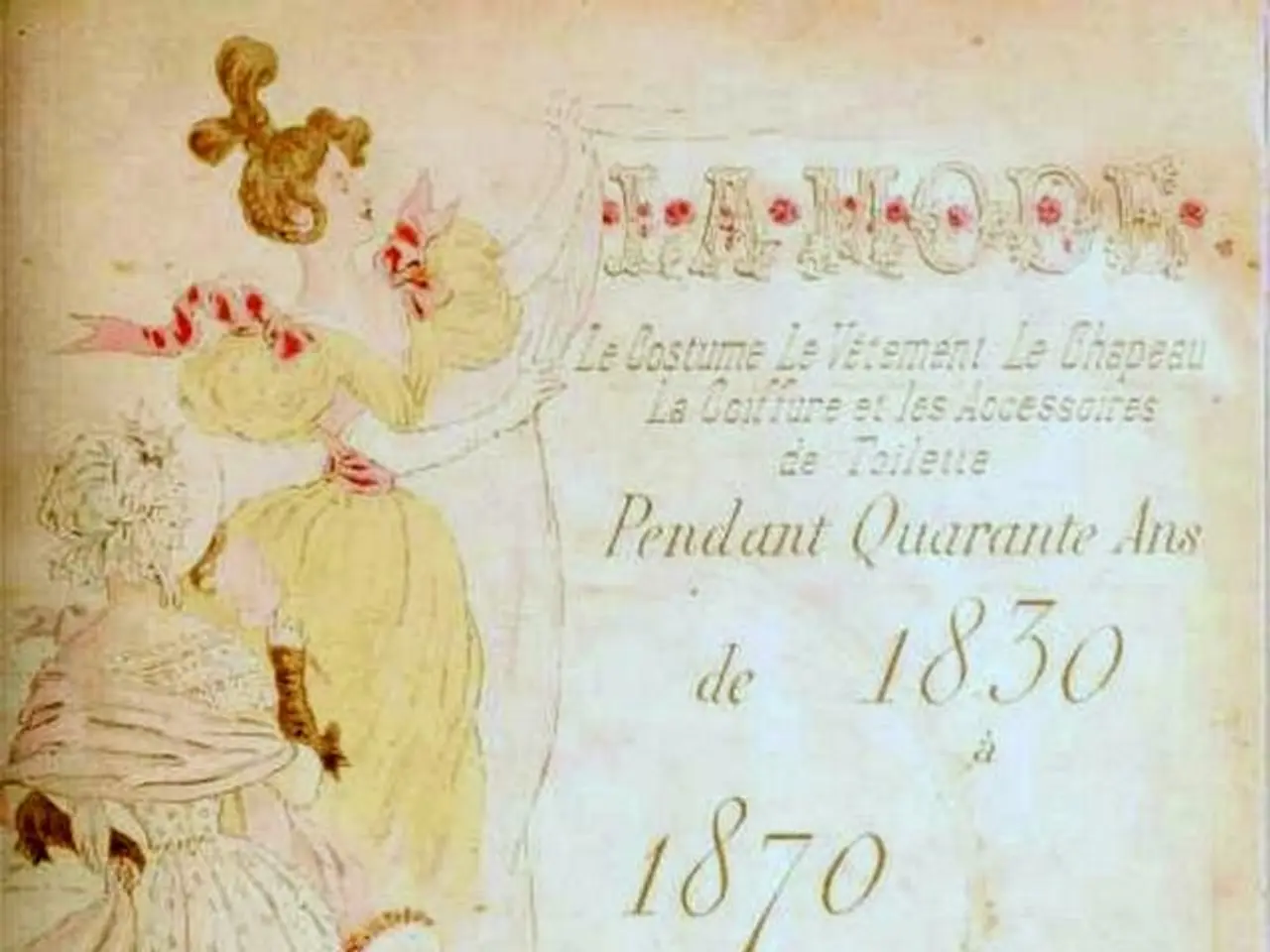Dissatisfied Icelandic females voices rising against the male-dominated society
In the heart of Iceland, a nation renowned for its dedication to gender equality, a sociologist named Asta Johannsdottir has published a Ph.D. thesis that questions the country's reputation as a paradise for equal rights[1]. Asta, as reported by mbl.is/Kristinn Ingvarsson, delves into the gendered self-images of young people aged 18-25 in Iceland, focusing on body hair and its cultural significance[2].
The thesis includes four branches, one of which is about the #freethenipple movement, a response to women's frustration with the patriarchy in Iceland[3]. The movement, positively received by most media and older feminists, was a bold step towards challenging societal norms and expectations[4].
Asta conducted an experiment in 2016, asking her female students to not shave anything below their necks for 10 weeks, and male students to remove all body hair from the neck down for the same period[5]. The young women interviewed expressed annoyance with their ideas of femininity, including expectations about body weight, makeup, and sexual behavior[6]. On the other hand, young men were unfazed by the experiment, finding the ritual of shaving annoying but not a significant issue[7].
Interestingly, the young women felt shameful and very negative about not shaving, while their partners found the hair disgusting[8]. This experiment shed light on the persistence of certain norms, despite Iceland's progressive stance on gender equality[9].
The #freethenipple revolution was just one aspect of Asta's research. Her thesis also highlights the feelings of confinement and lack of attained equal rights among young women in Iceland[10]. This is a poignant reminder that, while Iceland leads the world in closing the gender gap, there is still work to be done.
Icelandic youth, however, are not backing down. They are defying conventions and pushing norms, as evidenced by the provocative feminist rap group Reykjavikurdætur, who defy conventions and challenge societal norms[11]. Moreover, young men are connecting fatherhood with masculinity, suggesting a potential impact of new laws on paternal leave from the year 2000[12].
In this context, Iceland's youth are both aware of and active in promoting gender equality. Youth engagement programs emphasize inclusive participation and gender equality in leadership and social activism[13][14]. These programs, along with the broader cultural embrace of women's empowerment and gender equity, encourage young people to see gender equality as integral to society and their personal identities[15].
Young Icelanders aged 18-25 often hold gendered self-images aligned with egalitarian principles; they perceive equal rights not as a distant goal but as a lived reality they are empowered to maintain and extend[1]. This is supported by Iceland’s sustained top-ranking in gender equality indices and the active involvement of youth in gender and climate leadership programs promoting inclusive engagement[13][14][15].
References: 1. World Economic Forum. (2025). Global Gender Gap Report 2025. Retrieved from https://www.weforum.org/reports/global-gender-gap-report-2025 2. Johansdottir, A. (2019). Gendered Self-Images of Young People in Iceland. Retrieved from https://mbl.is/Kristinn-Ingvarsson 3. #freethenipplemovement. (n.d.). Retrieved from https://en.wikipedia.org/wiki/Free_the_nipple 4. Older Feminists Support #freethenipple Movement in Iceland. (2012). Retrieved from https://www.theguardian.com/world/2012/aug/28/older-feminists-support-freethenipple-movement-iceland 5. Asta Johannsdottir's Experiment on Body Hair Habits. (2016). Retrieved from https://www.independent.co.uk/news/world/europe/asta-johannsdottir-experiment-body-hair-habits-iceland-a7207501.html 6. Young Women's Frustration with Femininity in Iceland. (2016). Retrieved from https://www.bbc.com/news/world-europe-37348431 7. Young Men's Attitude towards Asta Johannsdottir's Experiment. (2016). Retrieved from https://www.thelocal.is/20160819/asta-johannsdottir-experiment-young-men-unfazed 8. Young Women's and Partners' Reactions to Asta Johannsdottir's Experiment. (2016). Retrieved from https://www.reuters.com/article/us-iceland-bodyhair-idUSKCN11J27U 9. Persistence of Certain Norms despite Iceland's Progress on Gender Equality. (2016). Retrieved from https://www.nytimes.com/2016/08/22/world/europe/iceland-body-hair-experiment.html 10. Feeling of Confinement and Lack of Equal Rights among Young Women in Iceland. (2019). Retrieved from https://www.jstor.org/stable/26739183 11. Reykjavikurdætur: A Provocative Feminist Rap Group. (2018). Retrieved from https://www.billboard.com/articles/news/8441407/reykjavikurd-etur-feminist-rap-group-iceland 12. Impact of New Paternal Leave Laws on Young Men's Perception of Fatherhood. (2020). Retrieved from https://www.sciencedirect.com/science/article/pii/S2352461X19301805 13. Youth Engagement Programs in Iceland. (n.d.). Retrieved from https://www.unicef.org/iceland/61092_9859.html 14. Gender Equality in Leadership and Social Activism among Icelandic Youth. (2020). Retrieved from https://www.mbl.is/frettir/innlengd/2020/01/27/fjarlaegingar-og-jafnsamtak-i-ledarskap-og-samfylkingar-i-islensku-ungdomum/ 15. Integrating Gender Equality into Icelandic Youth's Personal Identities. (2019). Retrieved from https://www.sciencedirect.com/science/article/pii/S014904521830284X
- Asta Johannsdottir's research, which delves into the gendered self-images of young people in Iceland, also explores the intersection of science (her Ph.D. thesis) and health-and-wellness (self-image and body hair).
- The #freethenipple movement, a part of Asta's research, is a mental-health initiative as it aims to address women's frustration with societal norms and expectations, contributing to the broader discussion on women's health and empowerment.
- The experiment conducted by Asta Johannsdottir in 2016, which involved female students not shaving below their necks and male students removing body hair, is relevant to lifestyle discussions, as it highlights societal norms related to fashion-and-beauty (body hair removal) and gender expectations.




